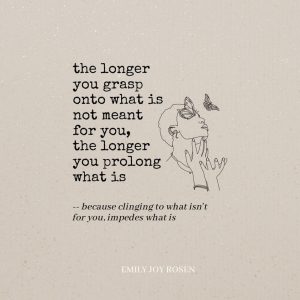Even though you may feel that you are 110% ready to end your eating disorder, some part of you is not willing to let go. The brain has a mind of its own and typically works in whatever way is favorable to your survival.
Recovery Fear
Fear is an emotional mechanism to protect you from danger, but it can also cause a great amount of unnecessary suffering. Even in circumstances that are clearly beneficial, like getting promoted or winning the lottery, your mind can tarnish the experience by taking you through countless fear based scenarios.
For example, if you got promoted, would your colleagues treat you differently because of your new role? Would they feel jealous of the pay raise, ultimately causing a divide that ends the friendship? And your boss’s expectations of you would probably double, so how would you be able to meet them?
Or, if you won the lottery, are you sure you would make the right decisions as to how to save/ spend the money? Would you and your partner disagree on what to do with the money or if you should continue working? And how would it impact your friendships, children, extended family, etc.? Even though these questions bear some logic, the level of anxiety that is induced by the fear alters your ability to not only enjoy your good fortune but also make decisions confidently and decisively. Fear has the power to turn every option, decision, and route into the wrong one.
This is not to say that you must banish fear to become happy. Some amount of fear is part of a healthy decision-making process. But when its power over you becomes too strong, it can hold you back. If an outcome is uncertain or not guaranteed, fear will take the opportunity to fabricate a frightening scenario that gets at the heart of a person’s conscious or subconscious fears.
For someone in recovery, the unknown around what day to day life will actually look like can lead to a great amount of anxiety or foreboding scenarios.
This is especially true for those who have struggled with disordered eating for as long as they can remember. They have no memory of what it felt like to trust their food choices or feel comfortable in their own body. Additionally, a realistic picture of what a healthy relationship with food might look like may be difficult to construct if they are surrounded by others who also have disordered relationships with food.
When we are uncertain of the outcome, we hold on, dig our heels in, and remain stuck in the same cycle. No matter how painful it may be, at least it is known and familiar.
I explain to my clients that in order to heal their disordered eating, they will need to throw out their current life playbook and create a new one. Just like in football, depending on the opposing team (in this case, the trigger), some strategies or plays may not always work. But with each attempt, you can get closer to the goal.
If you are ready to take the next step and get support in healing your eating disorder, reach out by clicking below. Recovery is absolutely possible!
Excerpt from Stop Bingeing, Start Living book & online course
Want to learn more about the course? Click here to learn more.


